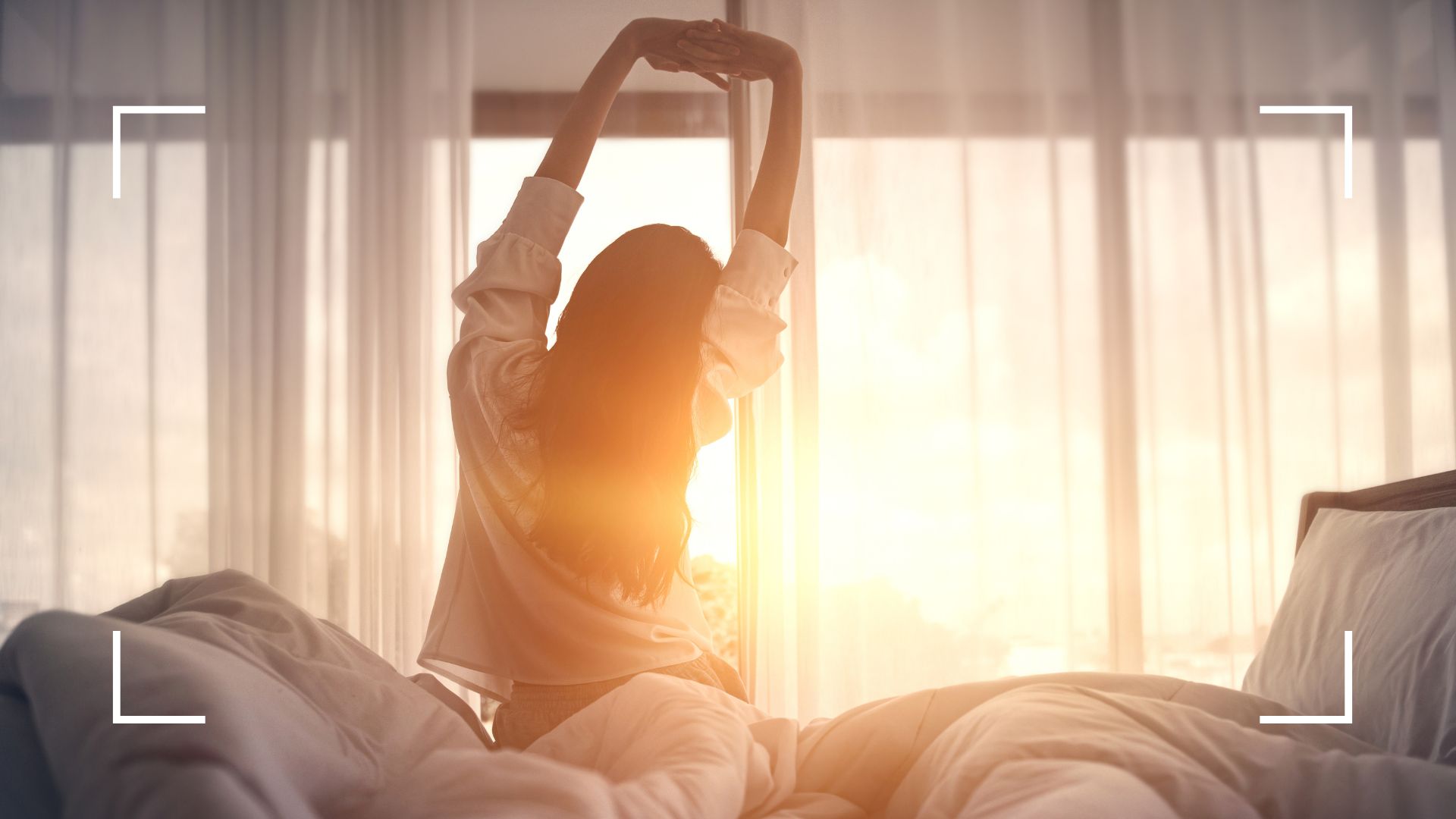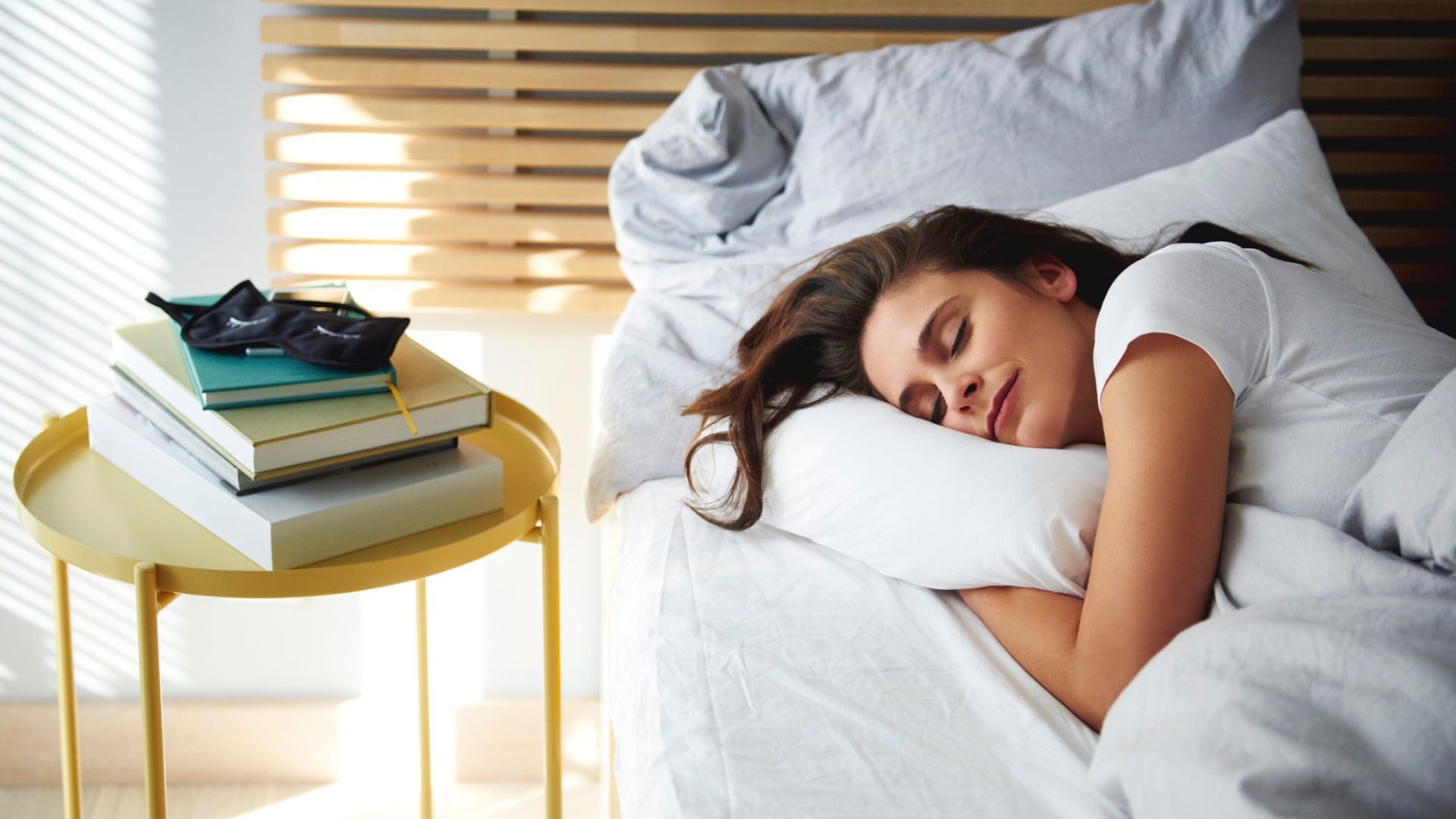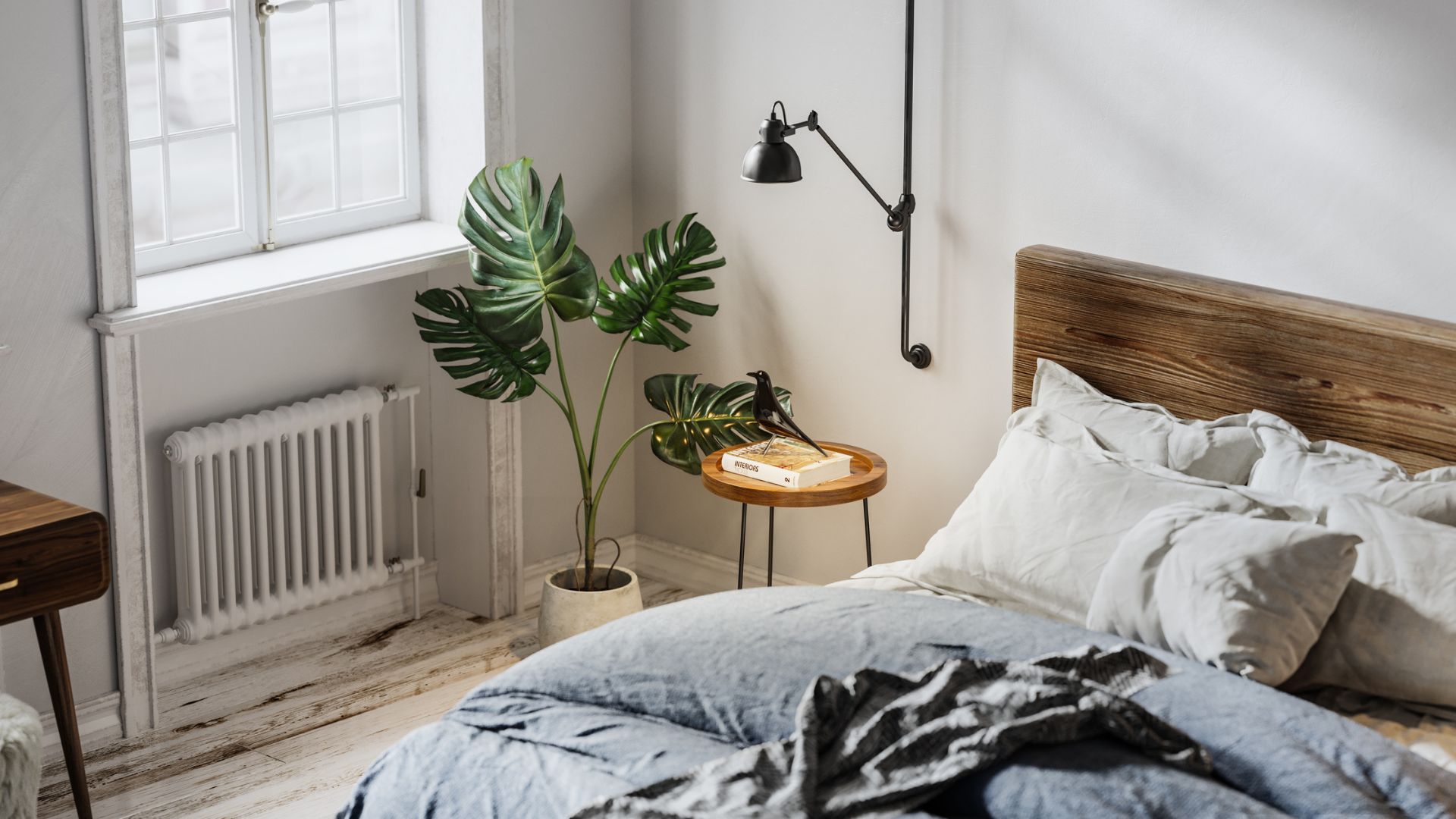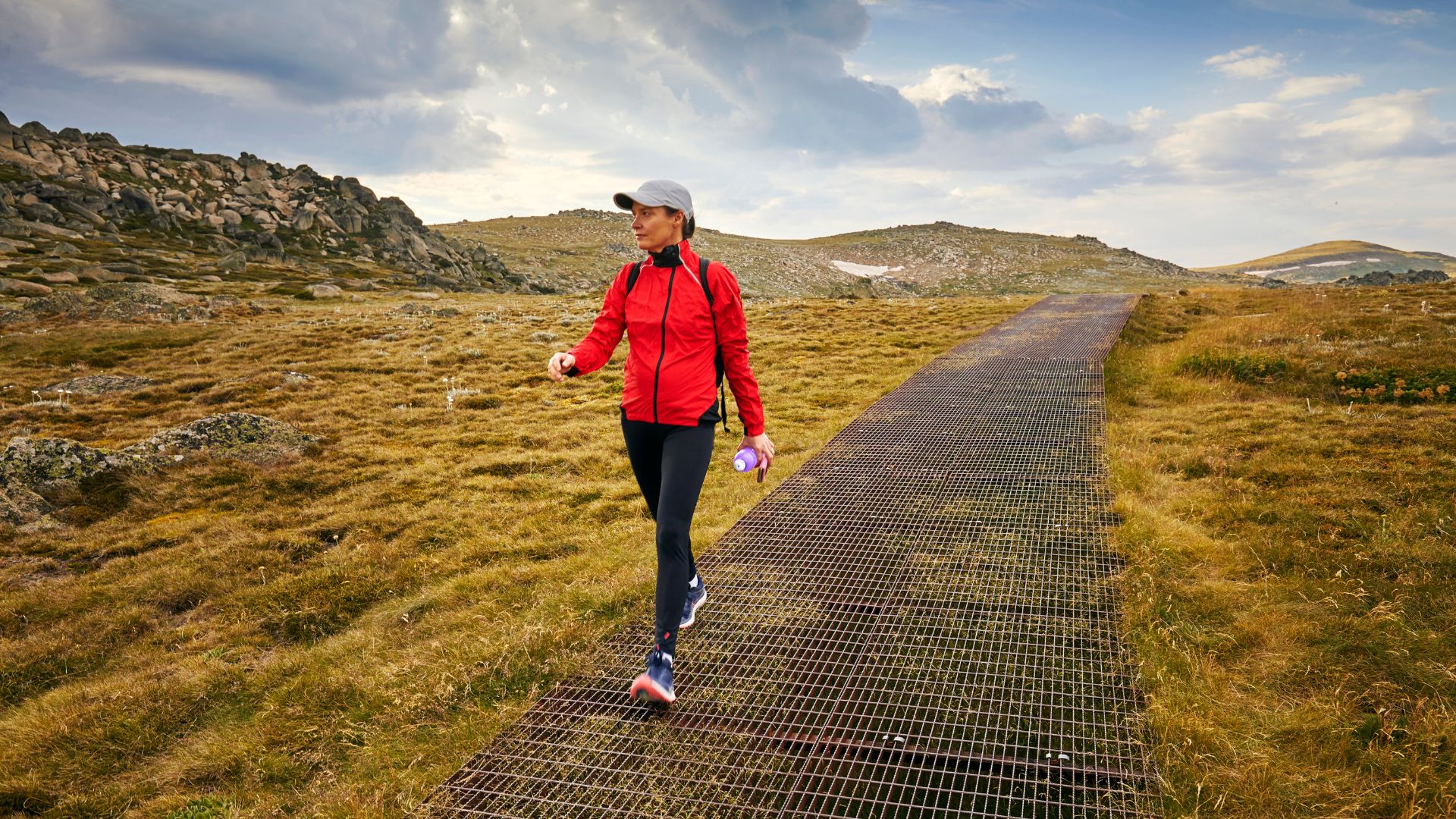Which direction is best for sleep? This feng shui principle may help you fall asleep quicker
If you're struggling to snooze, discovering which direction is best for sleep could help...


Understanding which direction is best for sleep might not be something you had previously considered. However, focusing on the way your bed is facing is something that ancient traditions believe can help improve the quality of those Zzz. So, if you're struggling to sleep and want to improve your environment, this could be something worth trying.
It's a philosophy that has been a core part of people's bedtime routines for thousands of years but as you'll learn, scientific research into the benefits of sleeping in a particular direction is very much in its infancy. This tried and tested bedtime boost could benefit you, but it should by no means be considered a cure-all for sleep issues. There are many evidence-based recommendations for good sleep hygiene instead, which we'll also examine. And of course, if you are battling with anxiety or insomnia at night then it is important to seek the advice of your doctor.
But if this is something you want to explore after exhausting other options, like sleep meditation and establishing a new sleep schedule, then we may have just what you need. We've called on a sleep expert to explain the philosophy behind sleep directions and reveal what the current research has shown regarding feng shui and whether lying north-south or east-west is best.
Which direction is best for sleep?
The Chinese feng shui tradition recommends, for instance, that the bed’s headboard should be up against a wall with the bed facing into the room, away from the door, so there can be no sense of anything being behind you as you sleep. Additionally, it suggests that the walls of your room should be painted a particular color depending on the direction they face - such as green on the east to invite creation and growth, and red on the south for power.
The Chinese philosophy of feng shui - which means "wind-water" - focuses on using energy forces to harmonize individuals with their surrounding environment. "It ensures our living spaces are balanced with the natural world. However, generally creating a sense of calm and safety throughout your home will help you relax," explains Heather Darwell-Smith, a psychotherapist specializing in sleep.
While few scientific studies have explored preferences for the position of a bed for humans, there's significant research into mammals' behavior in this area, she explains. "Humans share the same primal needs as mammals in wanting to sleep in a secure location. So, we may have subconsciously designed our bedrooms to ensure we can see the door from our bed to provide visibility of any threat and clear means to escape."
However, as much as tweaking the direction of your bed may help you learn how to sleep better if you feel a little nervous about the setup of your bedroom, the scientific research behind this isn't established yet. This is very important to note, says Darwell-Smith, because "those suffering with sleep anxiety as a result of insomnia may view this as another nighttime worry, particularly if the position of your house or structure of the room doesn't allow you to conform to this principle."
Sign up for the woman&home newsletter
Sign up to our free daily email for the latest royal and entertainment news, interesting opinion, expert advice on styling and beauty trends, and no-nonsense guides to the health and wellness questions you want answered.
Ultimately, the directions best for sleep will be the one that makes you feel most comfortable. "I want to stress the importance of creating a cool, calm dark room where you can relax and feel safe," she adds. "There is little doubt that environmental factors can and do have an enormous impact on the quality of our sleep. Light, noise, and temperature are all key considerations."

Why is south the best direction for sleeping?
More specifically, Vastu shastra and Ayurveda traditions (originating in India) suggest that the best direction for sleep is toward the south. This means that when you lie in bed your head is pointed south and your feet are pointed north. "They give particular weight to the idea that the direction in which we sleep about the Earth’s magnetic field may be important," says Darwall-Smith.
This is thought to be because your body has its north and south poles too - meaning that if it's not facing the right way then it may create tension that leads to headaches and other health problems. Scientific research has started to support this idea. "Using electroencephalogram (EEG) recordings of brain wave patterns, one study led by the Lahti University of Technology looked into whether the time between the beginning of sleep and the first REM episode is affected by whether they are sleeping with their body in the north-south or east-west direction," explains Darwall-Smith.
"They showed that those sleeping in an east-west position have shorter REM sleep cycles - essential for emotional regulation - than those who sleep in a north-south direction." However, Darwall-Smith points out that the study didn’t answer whether this changed depending on whether the person was in the northern or southern hemisphere - which could make an exciting area for further research.
The positives of the south-facing direction for sleep have also been supported in a more recent study. Scientists found a "strong relationship" between difficulties in falling asleep with geographical demands of sleep, adding that "sleep in north-south position can be advised to improve sleep quality". It adds to previous findings, led by the University of Duisburg-Essen, which discovered that animals such as cattle and deer naturally position their bodies this way when resting - meaning humans may do well to follow suit.
Can you sleep in other directions?
Yes, if the location or size of your room doesn't allow for a furniture shift, further evidence has suggested other directions may be beneficial in their own way. A study by the Max Planck Institute of Biochemistry in Munich indicated that participants who slept in an east-west position entered REM sleep more quickly. This is vital since while learning how to fall asleep fast is key, you also want the quality of your snooze time to be optimal too. However, Darwall-Smith points out that the number of participants - just 27 - is perhaps a little small for it to be statistically significant.
While the jury is still out among experts on which direction is best for sleep, there is plenty of evidence on the importance of good sleep hygiene. Put simply, this is taking steps to put yourself in the best situation to snooze well every night so you wake up feeling refreshed. For example, a study by the Qazvin University of Medical Sciences(opens in new tab) linked better sleep hygiene practices - which include avoiding napping during the day and caffeine near bedtime - to higher sleep quality.
Finally, as a reminder, getting a solid seven to nine hours' sleep as the Sleep Foundation recommends for adults is crucial for everything from brain power to mood and wards off a range of health, including heart disease and dementia. It's also important for women experiencing perimenopause symptoms and menopause symptoms since this tends to come with the risk of insomnia due to hormonal changes.

How to improve your sleep environment
- Only go to bed when you're tired: If you're wondering the best time to sleep and wake up, the answer will be entirely personal. "Only go to bed when sleepy," recommends Darwall-Smith. "If you sleep in cavelike darkness use a sunrise alarm clock to mimic the natural light in the morning. Your eyes will register the light before you wake, which can result in a much gentler waking than the abruptness of an alarm clock."
- Make sure your bedroom is a space you like: You should certainly decorate your bedroom to be where you want to spend time. "If you like lots of cushions, duvets go for it - or if you like a spartan paired down room then that might feel better," suggests Darwall-Smith.
- Block out distractions: "If need be, use separate duvets from your partner and if your partner moves a lot or you have different temperature needs consider a separate mattress," advises Darwall-Smith. "Use ear plugs if the external environment is noisy, or try brown noise for sleep and the best podcasts to fall asleep to. Blackout blinds or an eye mask can help create darkness."
- Choose the right sleeping position: Whether you're looking to find what position is best to sleep in the heat or how to sleep with lower back pain, finding the angle that works best for you can be the answer to a good night's sleep.
- Prioritize ventilation: "This is for both to keeping the room cool and to keep air circulating - the atmosphere can get stale due to the trapped air between the covers and body getting recirculated," explains Darwall-Smith. "A study by the Eindhoven University of Technology showed that sleeping with an open window led to better sleep with participants reporting that the air felt fresher." However, she acknowledges that for some people an open window might not be possible due to safety, allergies, or even personal preference - in this case, try keeping the bedroom door open to allow some airflow.

Lauren is a freelance writer and editor with a decade of print and digital journalism experience. While she specialises in covering health and wellness topics - ranging from nutrition and fitness, to women’s health conditions and mental wellbeing - she has written across a diverse range of lifestyle topics, including fashion, beauty, interiors and travel.
In addition to writing for Woman & Home and sister title Homes & Gardens, Lauren's work has also been published by Women’s Health, The Times, Daily Telegraph, Elle, Cosmopolitan, The Guardian, Marie Claire, Body + Soul, Stylist, Glamour, Grazia, Red, Dazed Digital, Yahoo Life, The Sun’s Fabulous, Get The Gloss and Hello! among others.
-
 Only have time to exercise at the weekend? Here's why that's no bad thing
Only have time to exercise at the weekend? Here's why that's no bad thingYou might think that you have to exercise multiple times a week to reap the benefits, but new studies on weekend exercise show that's far from the case
By Grace Walsh Published
-
 From screen to street: Iconic movie looks that started trends
From screen to street: Iconic movie looks that started trendsFashion comes and goes, but some movie moments are forever stitched into our style DNA
By Natalie Denton Published